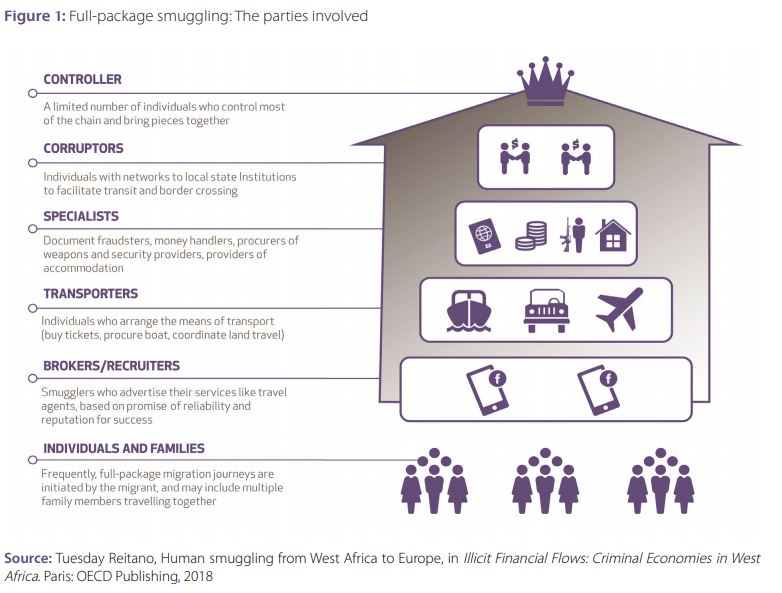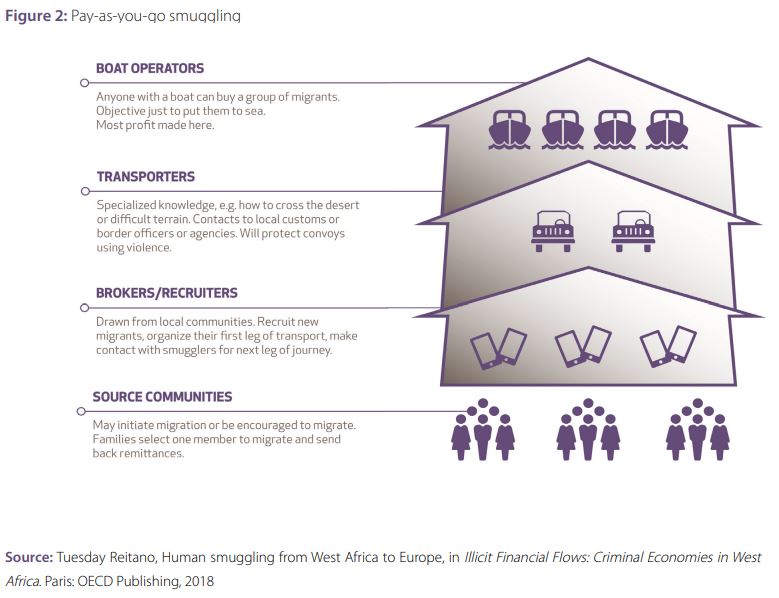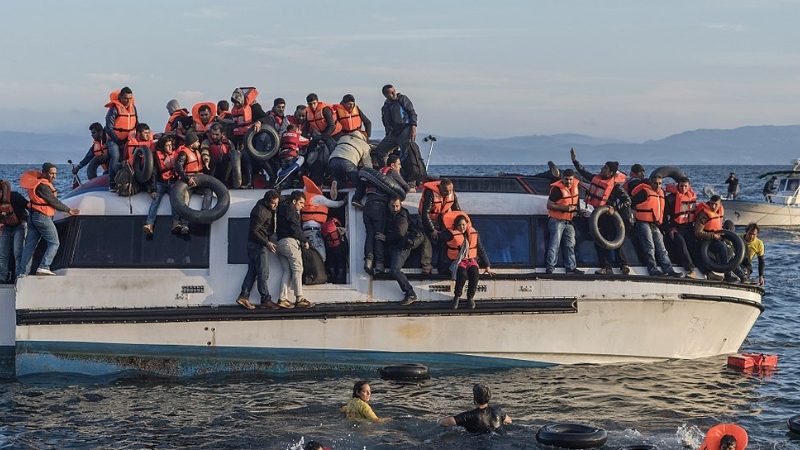Creating safe and legal routes for migrants and rebuilding safeguards will help reduce human smuggling while protecting those who are travelling, according to a report by the Global Initiative Against Transnational Organized Crime.
There is an urgent need to develop the capacity to map and monitor the markets of human smuggling – especially since it is is “now a pivotal vector in irregular and mass migration across the globe,” the report said.
Human smuggling plays a major role in irregular migration but it is a phenomenon that is poorly understood, since the distinction between human smuggling and trafficking iss often blurred.
The policy approach to migration and human smuggling is mainly confined to law enforcement and securitisation – “an ineffectual response that results in migrants being criminalised by the State and perceived as ‘others’ by citizens”.
The report pointed out that it had become “increasingly clear” that smugglers determine not only who moves, how they move, and the migrants’ routes and destinations, but that the safety of migrants is also largely in their hands.
Smugglers determine not only who moves, how they move, and the migrants’ routes and destinations, but the safety of migrants is also largely in their hands.
“It has become imperative that agencies and actors with mandates for managing migration or for protecting those on the move have a better understanding of human smuggling as a vector in migration,” it said.
Social media and the internet have facilitated the exchange of information and money in human smuggling – empowering them to recruit clients, evade detection and complete the journey.
The report argues that smuggling should be analysed and addressed as a supply and demand industry, “that is subject to market forces that determine recruitment drives, prices and the dangers that migrants are likely to be exposed to”.
There is a “crucial yet often blurred distinction” between human smuggling and human trafficking, which has hampered policy responses seeking to address both. In the case of smuggling, the victim is the State rather than the person who is smuggled, whereas, in trafficking, the crime is against the victim of trafficking, according to the report.
A smuggler helps a migrant pass through a boundary or barrier where there is no legal channel – against a fee. This might range from physical – to help migrants cross a challenging piece of terrain, such as a sea, desert or giant border fence – political or cultural. They often help protect migrants from local bandits, criminals and rent-seeking local officials.
The report notes that what may have started off as a transaction between migrant and smuggler could end up in trafficking. Yet, the majority of those who enter a smuggling agreement to move irregularly, do so successfully.
Larger smuggling teams may span a number of countries, with hundreds of people, while smaller, localised groups may work with fewer members while cooperating extensively with other local groups to coordinate operations.
The report identified two main payment models in the migration industry – full package and pay-as-you-go.
The full-package model is more commonly used in the case of migrant journeys over long distances and often ending in a destination country in Europe while those who opt for the pay-as-you-go are not interested in the destination country.

With the full-package service, migrants pay smugglers to arrange every element, including transportation, accommodation and fraudulent or illegally procured documentation. The service may also include integration support on entry into the destination country, such as procuring connections within the community.
Journeys are tailored to the needs of the migrant with a price tag of tens of thousands of dollars per person, and the fee typically payable in advance, in the Middle East and Africa – an exclusive level of service that is accessible to only the most privileged, the report said.
“The complexity and cost of the journey mean that only a small number of sophisticated and highly liquid smuggling networks have the logistical and financial wherewithal to offer this service”.
The pay-as-you-go is the “mass-transit bulk trade” and used by the vast majority of migrants. The journey takes place in stages, over short distances and the smugglers are hired to help migrants get through specific obstacles one leg at a time.

Transport is provided in the form of chartered buses, vehicles, transport containers, or the overloaded fishing vessels and rubber dinghies.
The report highlighted how, in many regions, human-smuggling has significant local legitimacy and “is seen as an important source of income where employment and industry are limited”.
When the operation is run by organised crime, the profits are reinvested into buying more cars or boats and leading to a wider network of corruption that reaches into the higher levels of the state, which is “integral” to the workings of the smuggling market. At a local level, police and other security and border officials collude with smuggling operators to facilitate the travelling process.
“Corruption lies at the very heart of the successful operation of the smuggling industry, and displacing it is among the greatest challenges that responses must address,” the report states.
Anti-corruption policies and training are important but without linked policies that target drivers of movement, these will prove ultimately ineffective and lend themselves to greater securitisation of the migrant market.
The report stresses the importance of putting in place systems and structures that can analyse existing migratory flows and pre-empt mass migration surges that generate the “politically impulsive, expedient responses” that have inflicted incredible damage.
These would help move towards a systemic understanding of the role human smugglers play in migration and the development of an effective, more sustainable mitigation strategy to minimise smugglers’ detrimental impact on mandates for good governance, development and human security.












